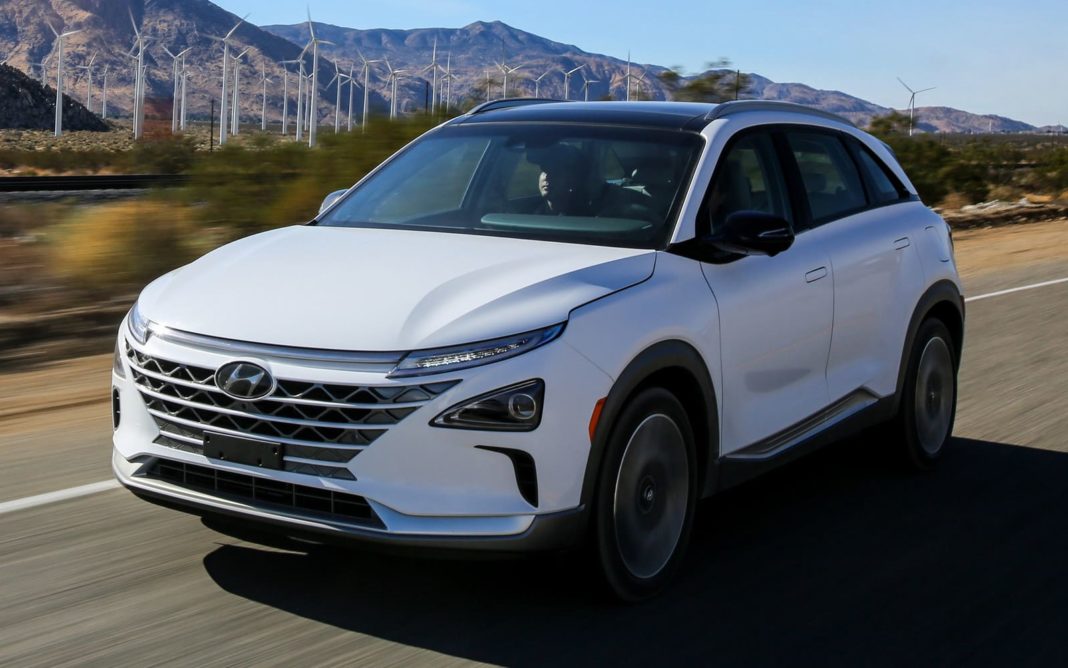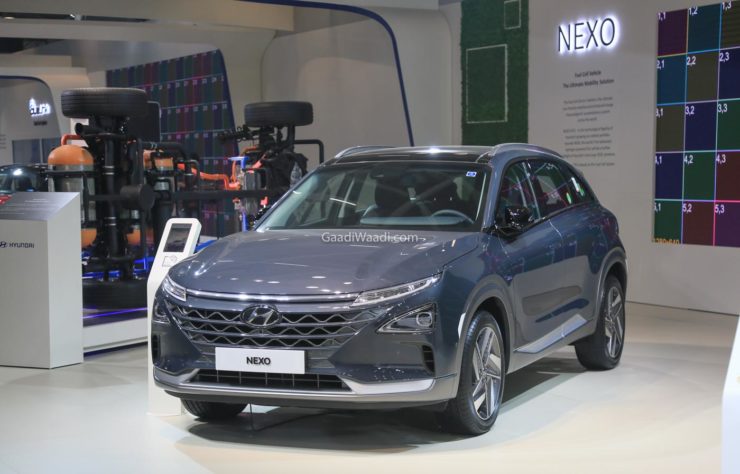
Hyundai Nexo FCEV could be the South Korean carmaker’s next CBU product for India, expected to launch in 2021
Hyundai Nexo FCEV, which was showcased at the 2020 Auto Expo, could launch in India next year. If so, it would be brought here in limited numbers via the CBU import route, to avoid homologation. The Nexo FCEV is a Fuel Cell Electric Vehicle, that uses hydrogen fuel to generate electricity, which then powers the electric motor.
A fuel cell EV has a few advantages over a conventional, battery-powered EV. The first one is the ease of refuelling. FCEVs do not require a plug to charge, rather it uses a hydrogen fuel tank, which can be filled in just a few minutes, like in normal petrol- or diesel-powered car. This is quite a practical benefit, as battery EVs usually take around an hour to charge up sufficiently.
The biggest disadvantage of FCEVs, especially in India, is the lack of hydrogen filling stations. In the European market, this isn’t a problem, as there are plenty of hydrogen stations around the continent. That said, the EV infrastructure, in general, is quite weak in India, and regular EV owners are also usually limited to charging their vehicles at home.
Hyundai Nexo FCEV has maximum power and torque ratings of 163 PS and 395 Nm. It can go from 0 to 100 kmph in around 8.5 seconds, and can reach a top speed of 179 kmph. Although performance isn’t breathtaking, the Nexo has another party trick up its sleeve. The car emits only water vapour from its tailpipe, thereby making this an emissions-free car.
The driving range of the Nexo is also impressive, claimed at 666 km in WLTP test cycles. It will also have a lot of convenience features on-board, like a 12.3-inch touchscreen infotainment system, wireless charging, an 8-speaker KRELL sound system (with external amplifier), sunroof, heated and ventilated seats, and heated steering wheel.
The Nexo FCEV will retail as a premium niche product, like the Hyundai Kona EV, but is expected to carry a heftier price tag of around Rs. 50 lakh (ex-showroom, New Delhi). Hyundai has also stated that it is dedicated to providing the required infrastructure for sustaining such vehicles, initially in Delhi/NCR, and later to other Indian cities as well.

